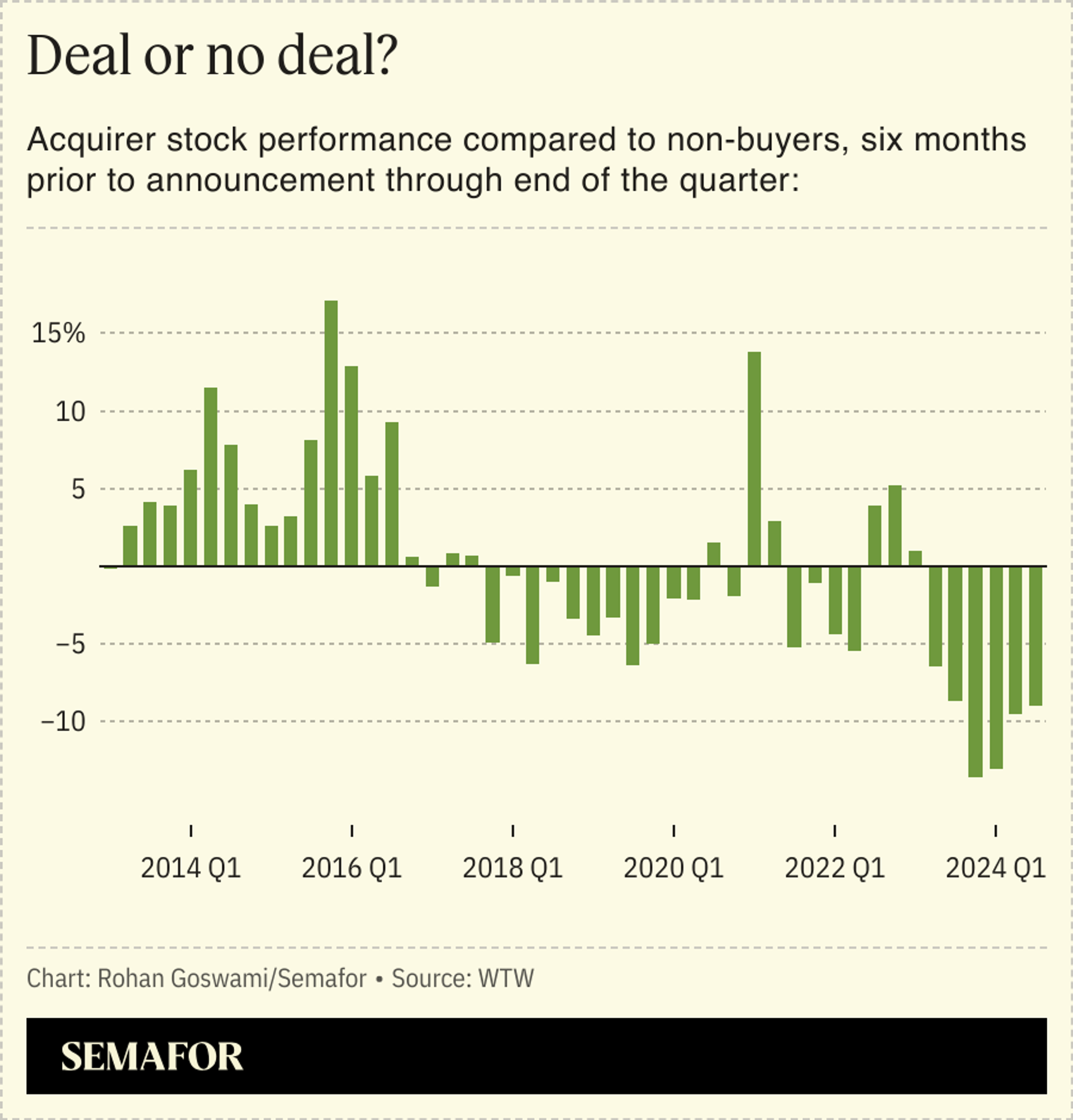The News
If you talk to CEOs and dealmakers right now, you can hear the animal spirits stirring.
Stocks are hitting record highs, and the expectation of lighter regulation under Donald Trump — who is talking about buying Greenland and absorbing Canada — has companies eying mergers that would have faced long odds under President Joe Biden’s regulatory ax.
“When I went into a Fortune 500 boardroom two years ago with an idea for a transformative deal, they had 18 excuses why not to do it: ‘Too much uncertainty, we have to figure out the rate cycle, never going to get through antitrust review, what about a recession?‘” said Raphael Bejarano, who co-heads Jefferies’ dealmaking arm. “That’s washed away.”
But as with so much of the economy lately, the numbers and the vibes don’t quite match up. The $27 billion worth of deals that have been announced in the US so far this year is actually lower than the first two weeks of 2024, according to Dealogic data.
Borrowing is still expensive. The recently released minutes from the Federal Reserve’s December meeting show that the call to cut rates was a close one, meaning it’s likely to stay expensive. Trump’s tariffs could dent corporate earnings, and his plan for widespread deportations could bring back labor shortages.
“Tariffs alone could be a deal killer or a deal facilitator,” Paul Weiss’ global co-head of M&A Krishna Veeraraghavan said. Companies keen to control their own supply chain might jump at the chance to buy overseas vendors, he said.
In this article:
Rohan’s view
Corporate development teams have had a frustrating three years, so the prospect of being able to pull some M&A ideas off the shelf is appealing. But just because dealmaking is happening doesn’t mean it should. Data from WTW shows that acquirers continued to underperform non-buyers in the third quarter of 2024, reinforcing a trend that has been going on since 2023.

And corporate executives expecting a lighter antitrust regime could be unpleasantly surprised. During his first term, Trump sued to block AT&T’s takeover of Time Warner, a move seen to be motivated by his dislike of Time Warner’s CNN and its coverage of his administration. And Vice President-elect JD Vance is a vocal critic of corporate consolidation.
“People are projecting that things are going to be better from a regulatory perspective,” says Veeraraghavan. “I think they will be, if only because it’ll be hard for it to be worse.”
One to watch: Image repositories Getty and Shutterstock’s $3.7 billion merger. On paper, it looks a lot like the thwarted union of Penguin Random House and Simon & Schuster, which was blocked by a federal judge when the Biden DOJ/FTC argued that it would hurt authors (for which, read photographers) by shrinking the field of publishers vying for their content.
Notable
- Freshfields’ M&A chief Ethan Klingsberg doesn’t predict a wave of PE M&A activity this year, and thinks that big boards will still be leery about pursuing deals with low odds of approval. “All that being said, we will see boards of some sizeable, publicly listed companies take the plunge and sign up exciting merger of equals transactions,” he wrote.
